5-7 hours of social media use: Trade-off for health and spirit
During the discussion session on socio -economic development at the 10th session of the National Assembly this morning (October 30), Delegate Chau Quynh Dao (An Giang Delegation) raised an urgent alarm about the negative impact of social networks on teenagers and the tragic consequences when children get lost in the virtual world.
Delegate Chau Quynh Dao opened with joy when Vietnam achieved impressive achievements in digital transformation, ranked 6th out of 40 countries according to the 2025 World AI Index published by the Independent Market Research Network.
This is a testament to the great efforts of the Politburo , the National Assembly and the Government in digital transformation. However, besides the positive aspects, she expressed concern about the current situation of social media use by young people.
"I am very worried about the negative impacts on teenagers. Because if they lack knowledge and skills to use social networks effectively, they can easily become "addicted" to social networks," Ms. Dao said.
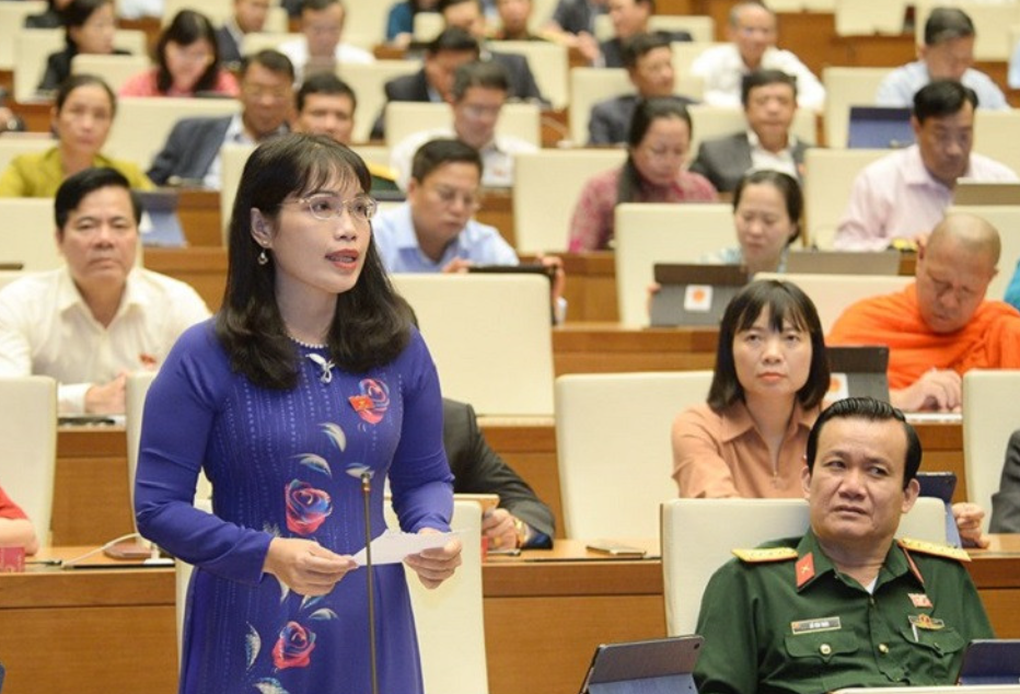
National Assembly Delegate Chau Quynh Dao (Photo: NA).
Ms. Dao cited UNICEF survey data from 2022 to illustrate the seriousness of the problem: 82% of 12-13 year olds use the internet every day.
This figure increases to 93% for 14-15 year olds. They spend 5-7 hours a day on social media.
Delegates warned that spending too much time on social networks will have serious consequences for both physical and mental health.
"Children will have a weakened immune system due to chronic insomnia, lack of exercise, carpal tunnel syndrome, eye and spinal diseases... The brain also has poor creative thinking," she analyzed.
In particular, regarding mental health, the consequences are even more serious, such as anxiety, stress, depression, and most frighteningly, self-destruction.
Although Ms. Dao said the survey data was from 2022, in a report on children's voices, it also showed that less than 21% of children were confident that they had enough knowledge and skills to deal with risks from social networks. So far, this data has improved but not high.
According to the Delegate, Vietnam's policy system has paid much attention to protecting children's safety in the online environment, but it is not complete.
Every year, the Ministry of Education and Training has a plan to coordinate with the Ho Chi Minh Communist Youth Union to direct schools to organize many activities to ensure children are safe and have healthy and appropriate access to the internet. She also cited the Law on Children and the Law on Cyber Security to protect children.
However, she was concerned that Decree No. 147/2024/ND-CP of the Government on management, provision and use of Internet services and online information only stipulates that in the case of service users who are children (under 16 years old), the child's parents or legal guardians must register an account using the information of the child's parents or legal guardians and are responsible for monitoring and managing the content that children access, post and share information on social networks.
She suggested that it is necessary to add regulations to limit the age of access and the time of access. The delegate cited regulations in some countries such as Australia, which prohibits children under 16 from using social networks, and the Dutch government, which recommends that children under 15 should not use some social networking platforms.
For children over 12 years old, the Dutch Government recommends limiting total screen time (including phones, computers and other electronic devices, not just social media) to no more than 3 hours/day.
On the other hand, the female delegate also pointed out that the term "social network addiction" has not been included in the medical sector's professional documents to guide the diagnosis and treatment of some mental disorders because this issue is still complicated and under discussion around the world.
In-depth research on negative impacts is available but limited compared to the warning level of the World Health Organization.
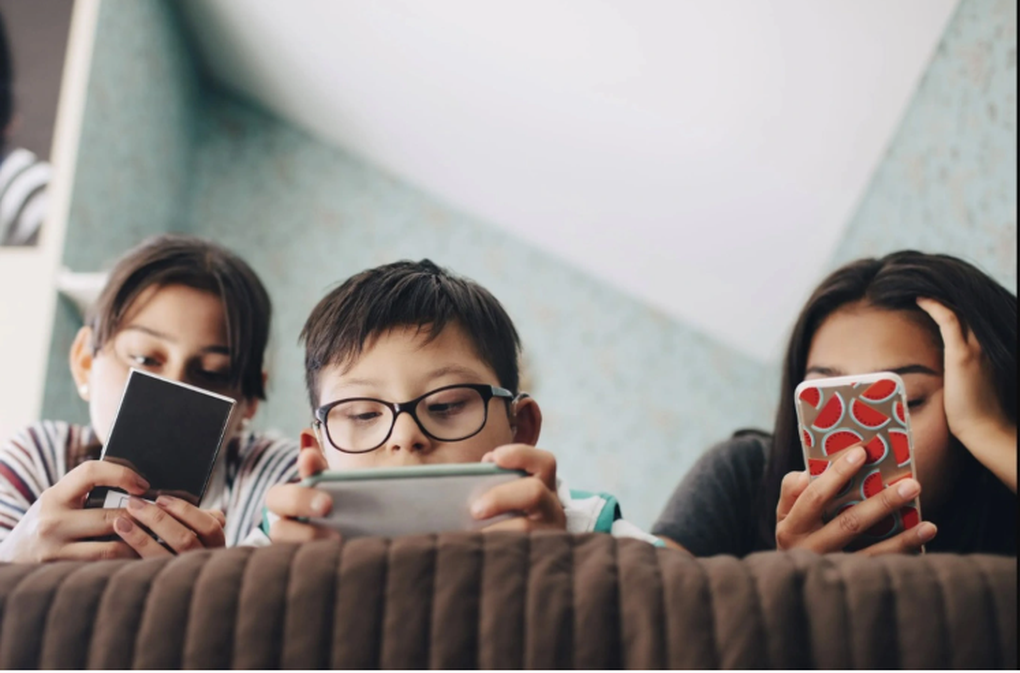
There is growing evidence that smart devices and social networks can have a negative impact on children's mental health (Illustration: Gettyimages).
Analyzing the cause from the family's concerns, Ms. Chau Quynh Dao pointed out the problem: "Even the family sees social networks and electronic devices as babysitters so that they have time to take care of the house and make a living."
Due to pressure to achieve results, schools focus on cultural education and do not pay attention to organizing quality extracurricular activities to create useful playgrounds for students.
Analyzing the causes from the youth side, Delegate Quynh Dao pointed out that they lack courage, will and ideals in life. This is the root cause that makes children tempted and immersed in the colorful but dangerous virtual world.
"You guys are immersed in the virtual world, dreaming about the domineering CEO, but when you come across reality, you get a very cruel ending," Ms. Quynh Dao said.
"Electronic nannies" and policy loopholes that need to be tightened
From the above situation, Delegate Chau Quynh Dao proposed that the National Assembly and the Government pay attention to solving it through a number of main groups of solutions.
In particular, she emphasized the need to review the legal policy system and clearly stipulate the minimum age for children to use social networks and the maximum access time limit. Study international experience to apply appropriately to Vietnam's reality.
Agencies should encourage in-depth research on the negative impacts of social media, especially addressing existing shortcomings.

Preschool students in Ho Chi Minh City during a fun activity at school (Photo: Huyen Nguyen).
On the school side, it is necessary to pay attention to organizing and implementing well the teaching of 2 sessions/day, the quality of extracurricular activities, and integrating propaganda to help students "quit addiction" and increase immunity.
Families need to create a suitable and strict educational environment for their children, set limits on usage time, and firmly say "No to electronic devices" during meals and before bedtime.
The delegate also emphasized that students themselves need to have full determination to overcome the temptations of the very addictive virtual world brought by social networks.
Source: https://dantri.com.vn/giao-duc/canh-bao-hau-qua-nghiet-nga-khi-phu-huynh-bien-dien-thoai-thanh-bao-mau-20251030105412639.htm


![[Photo] General Secretary To Lam meets former British Prime Minister Tony Blair](https://vphoto.vietnam.vn/thumb/1200x675/vietnam/resource/IMAGE/2025/10/30/1761821573624_tbt-tl1-jpg.webp)
![[Photo] The Third Patriotic Emulation Congress of the Central Internal Affairs Commission](https://vphoto.vietnam.vn/thumb/1200x675/vietnam/resource/IMAGE/2025/10/30/1761831176178_dh-thi-dua-yeu-nuoc-5076-2710-jpg.webp)
![[Photo] National Assembly Chairman Tran Thanh Man receives foreign ambassadors who came to say goodbye](https://vphoto.vietnam.vn/thumb/1200x675/vietnam/resource/IMAGE/2025/10/30/1761820977744_ndo_br_1-jpg.webp)
![[Photo] General Secretary To Lam attends the Vietnam-UK High-Level Economic Conference](https://vphoto.vietnam.vn/thumb/1200x675/vietnam/resource/IMAGE/2025/10/30/1761825773922_anh-1-3371-jpg.webp)
![[Photo] Touching scene of thousands of people saving the embankment from the raging water](https://vphoto.vietnam.vn/thumb/1200x675/vietnam/resource/IMAGE/2025/10/30/1761825173837_ndo_br_ho-de-3-jpg.webp)

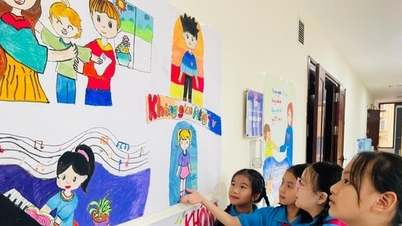







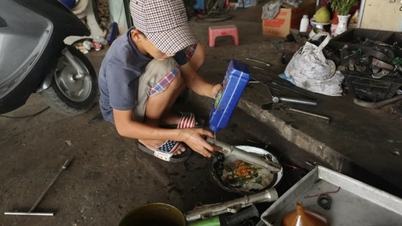






































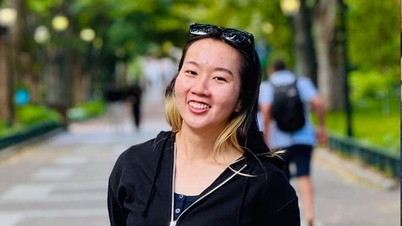





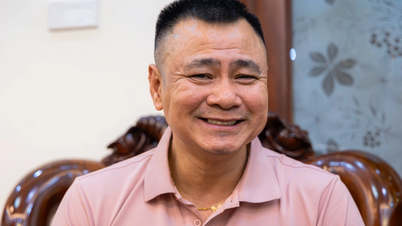



















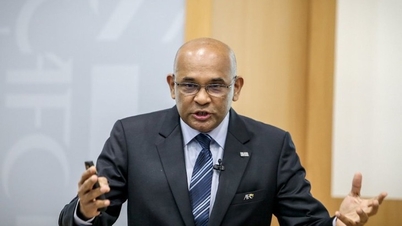






























Comment (0)